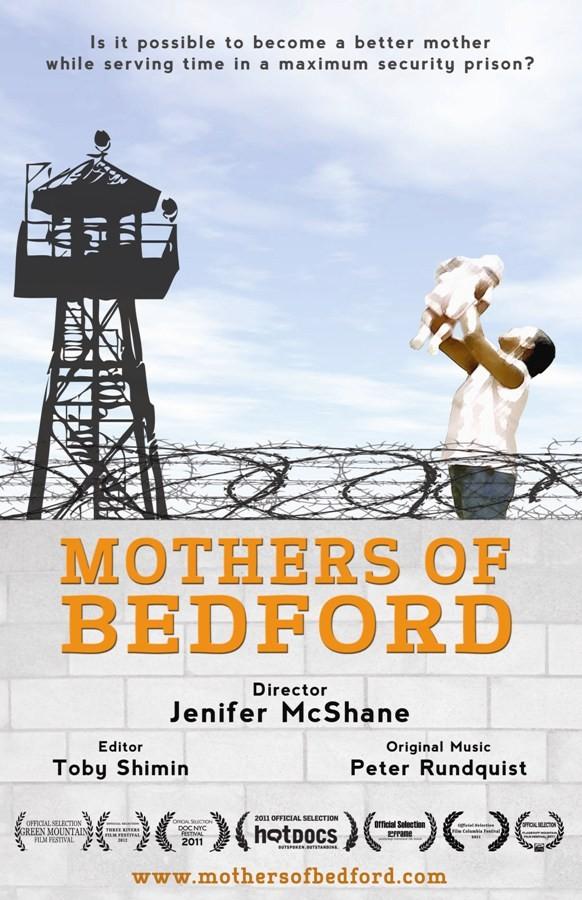“Bedford” film explores parenting while incarcerated
Just imagine what it would be like being a parent and not being able to see your children every day. “Mothers of Bedford” follows five women, Melissa, Tanika, Mona, Rosa, and Anneathia over the course of four years. The film explores long-term incarceration of mothers and their relationships with their children. The children in the film range in ages from infants to teens.
Emily Neilsen, the coordinator of first-year events at Johnson State College gave big thanks to Laraway, the Lamoille Restorative Center, and the Lamoille Family Center before the start of the film. Neilsen also thanked Bobby Blanchard who was the director of the children’s center at the Bedford Hills Correctional facility during the time of the film. Blanchard was present during the showing of the film at JSC.
Directed by Jenifer McShane and set primarily at the Bedford Hills Correctional Facility in Bedford Hills, N.Y., this film is approximately 90 minutes long. “Mothers of Bedford” won the 2013 Director’s Choice Award at the Seattle Social Justice Film Festival, and was featured as part of PBS’s series, “America Reframed.”
The Bedford Hills Correctional Facility houses a children’s center, where mothers can spend time with their children while in prison. It also has a parenting program for prisoners. The prison serves as an example for other prisons. The documentary captures many interviews with the five prisoners and their family members.
Throughout the film, it seemed as if it was pushing the fact that the women’s experiences in prison gave them a new look on their roles as mothers. All of the women seemed to express that they all had much more appreciation for being mothers.
Melissa’s story was a little different from some of the other mothers involved in the film. Melissa was pregnant upon her entry into the facility and gave birth to her daughter Emma, who spent the first 18 months of her life in prison with her mother.
Anneathia’s story is just as heartbreaking. She was serving a 10-year sentence at Bedford, and has two daughters that were sent to the custody of her mother Luecrezy who was a recovering drug addict at the time as well, and ends up having a relapse; she eventually loses custody of the children. With the help of everyone at the Bedford facility Anneathia and her family end up overcoming the situation.
Tanika and Mona were both leaders in the film. Tanika is the mother of two boys that were approaching their teenage years, and she loved to play basketball with them on their visits. She was also the facilitator for a class called Parenting from a Distance while she was at Bedford. Mona would often lead a scrapbooking exercises in the facility. She really put an emphasis on the history that happens in all the woman’s lives while in Bedford. She used her son as an examples saying that she has learned a lot about him during the visits they have.
When I first heard about the film my initial thought was that the women the film focused on would be somewhat like the characters on the new television series “Orange is The New Black.” The women involved in this particular show seem to be hardened and they show bitterness. This film is nothing like that at all, instead showing how a mother’s loving heart for her children is universal. Often, the women in the film dealt with the same challenges as a mother living at home with her children would. Discipline problems, parent/teacher conferences, and worrying about their children’s well-being are just a few examples.
The film really seems to put an emphasis on each woman’s role as a parent and how motherhood can overcome many boundaries.
As far as situations like Bedford’s go, in Vermont roughly 64.1 percent of incarcerated adults are reported to have children. This is noticeably higher than the national rate of 52 percent. There are 1,600 Vermont children who have an incarcerated parent on any given day. Only about a third of children impacted by parental incarceration visit their incarcerated parent.
In addition, in Lamoille County there is the Lamoille County Justice Program or CJP. It provides health focused, home-based case-management services to children ranging in ages from infants to 12 years old. These children are generally affected by or influenced by their parent’s incarceration. The ultimate goal is to help the children make the transition into adulthood by avoiding involvement with the criminal justice system.
Kids-A-Part or KAP is another children’s program based out of the Chittenden Regional Correctional Facility in Chittenden County. It focuses on intensive facility-based visitation and parenting programs such as the facility in Bedford.
For more information about how to get involved with the programs in Lamoille County you can visit www.lrcvt.org or call 802.888.5871.








